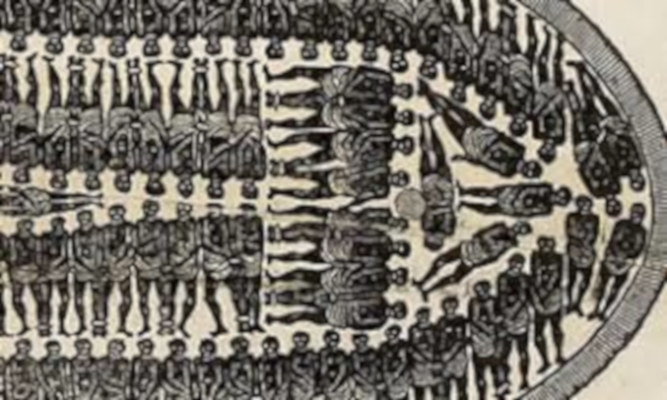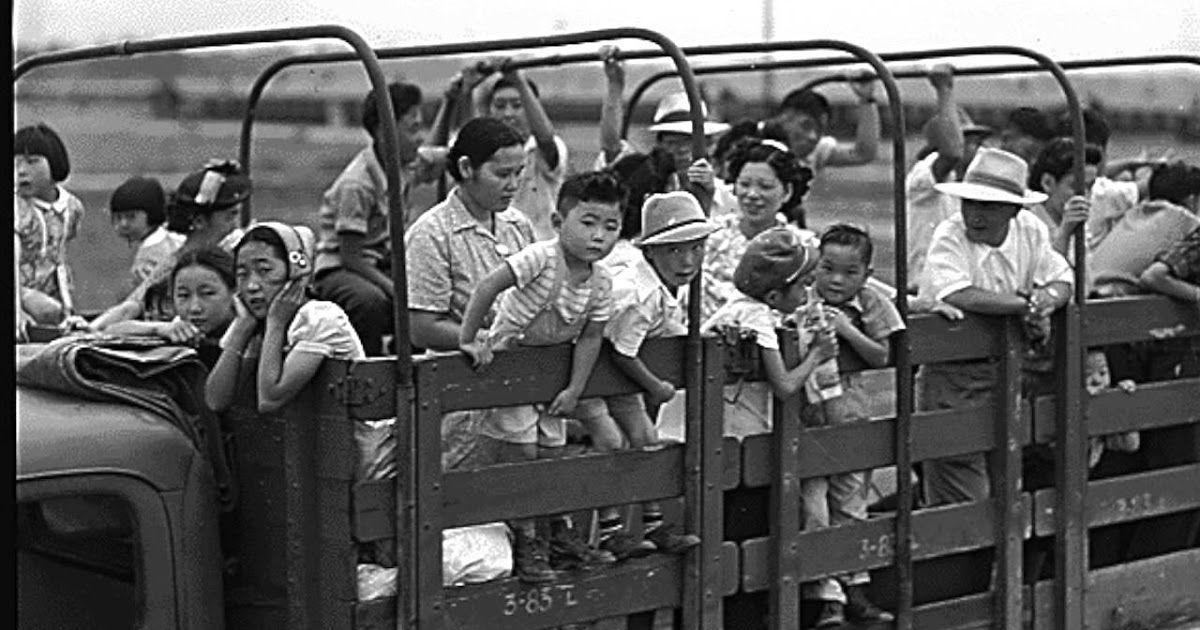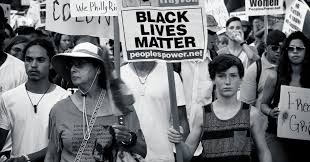Users Who Spiked

REPARATIONS=REPAIR OUR NATION?
Private Notes
Private Notes
Notes
What are reparations?
Reparations are a way that a person might attempt to make amends for something wrong they have done. This is typically done by helping or paying money to the person they have done wrong. Although the current topic of discussion in the headlines relates to how the 2020 presidential candidates feel about reparations for the descendants of slaves, the idea of the U.S. government paying reparations to those they have wronged has been legally applied and agreed upon several times to others in the past. Forty years after the wartime internment of Japanese Americans, President Reagan signed the Civil Liberties Act of 1988 to apologize on behalf of the U.S. government for the imprisonment of Japanese Americans, the loss of their property, and the deaths that resulted from the conditions in those internment camps. Reparations were then paid to the 60,000 surviving internees, each receiving $20,000 tax-free. In addition, the U.S. government agreed to pay $492 million in reparations to 17 Native American tribes in 2016 for mismanaging tribal assets and natural resources.

If the U.S. government was willing to (eventually) pay reparations to Japanese Americans and Native Americans, why should it not consider paying reparations to the descendants of slaves? Wasn't slavery a huge mistake that the U.S. government allowed to happen too?
Why do some people think the descendants of slaves should receive reparations?
Shortly after the Civil War, there was a pledge for land redistribution made to approximately 40,000 former slaves. In that pledge, the former slaves were promised "40 acres and a mule", however, the redistribution process didn't last long. After Abraham Lincoln was assassinated, his successor, President Andrew Johnson, rescinded the order and gave the land back to white owners later that year.

Reparations for the descendants of slaves would likely mean the U.S. government would not only need to acknowledge the ongoing legacy of slavery and the discrimination that followed thereafter, it would also mean paying money to those affected. Many people take issue with this idea and argue that paying reparations does not make sense because there are no longer any former slaves living. Many think that since it has been so long, any affects slavery has had on the black community has been over for quite some time. However, many people also believe that the effects of slavery still linger in subtle ways that continue to have a negative impact on black communities. Martin Luther King Jr. made a very compelling case in regard to why black Americans have historically faced more obstacles than white European immigrants and how he felt it was still affecting the black community at the time when he gave his sermon called, "Remaining Awake Through a Great Revolution". Here is an excerpt of his sermon that explains why he felt this way:
"There are those who still feel that if the Negro is to rise out of poverty, if the Negro is to rise out of the slum conditions, if he is to rise out of discrimination and segregation, he must do it all by himself. And so they say the Negro must lift himself by his own bootstraps. They never stop to realize that no other ethnic group has been a slave on American soil. The people who say this never stop to realize that the nation made the black man’s color a stigma. But beyond this, they never stop to realize the debt that they owe a people who were kept in slavery two hundred and forty-four years. In 1863 the Negro was told that he was free as a result of the Emancipation Proclamation being signed by Abraham Lincoln. But he was not given any land to make that freedom meaningful. It was something like keeping a person in prison for a number of years and suddenly discovering that that person is not guilty of the crime for which he was convicted. And you just go up to him and say, 'Now you are free,' but you don’t give him any bus fare to get to town. You don’t give him any money to get some clothes to put on his back or to get on his feet again in life. Every court of jurisprudence would rise up against this, and yet this is the very thing that our nation did to the black man. It simply said, 'You’re free,' and it left him there penniless, illiterate, not knowing what to do. And the irony of it all is that at the same time the nation failed to do anything for the black man, though an act of Congress was giving away millions of acres of land in the West and the Midwest. Which meant that it was willing to undergird its white peasants from Europe with an economic floor. But not only did it give the land, it built land-grant colleges to teach them how to farm. Not only that, it provided county agents to further their expertise in farming; not only that, as the years unfolded it provided low interest rates so that they could mechanize their farms. And to this day thousands of these very persons are receiving millions of dollars in federal subsidies every year not to farm. And these are so often the very people who tell Negroes that they must lift themselves by their own bootstraps. It’s all right to tell a man to lift himself by his own bootstraps, but it is a cruel jest to say to a bootless man that he ought to lift himself by his own bootstraps. We must come to see that the roots of racism are very deep in our country, and there must be something positive and massive in order to get rid of all the effects of racism and the tragedies of racial injustice."
Martin Luther King Jr.'s sermon describes some of the ways "white privilege" began in America, a term that many people of European descent argue is non-existent. I believe this is one of the most controversial aspects of what is really at the root of the arguments for and against reparations for the descendants of slaves. For many people that are in favor of reparations, what they want most is for the U.S. government to acknowledge that the original sin of slavery was not only heinous but also that it caused several disadvantages to black Americans. Without full government support to help the country transition and to protect it's newly freed citizens, freedom from slavery led to other issues, especially in the south, resulting in the terrible treatment and discrimination of black Americans that has affected the black community for several generations.
The Racial Wealth Gap

According to the Census Bureau's Current Population survey, it is estimated that black families in America currently earn just $57.30 for every $100 in income earned by white families (https://www.nytimes.com/interactive/2017/09/18/upshot/black-white-wealth-gap-perceptions.html). In fact, it has been estimated that it would actually take black Americans 228 years to earn as much wealth as white Americans currently possess. Unfortunately, black Americans still would not have drawn even on it as it is presumed that white Americans would still have accrued more wealth within that duration of time (https://ips-dc.org/wp-content/uploads/2016/08/The-Ever-Growing-Gap-CFED_IPS-Final-2.pdf). It has been argued that perhaps reparations for the descendants of slaves could help close the racial wealth gap and might actually be a solid approach for healing the racial tensions that currently exist within our society. In his 2014 article, "The Case for Reparations", Ta-Nehisi Coates thoroughly described the affects that slavery has had on black Americans throughout history and says that he believes that "the payment of reparations would represent America's maturation out of the childhood myth of its innocence into a wisdom worthy of its founders."
To address the argument that reparations would only further divide us, Coates said:
"Not any more than we are already divided. The wealth gap merely puts a number on something we feel but cannot say—that American prosperity was ill-gotten and selective in its distribution. What is needed is an airing of family secrets, a settling with old ghosts. What is needed is a healing of the American psyche and the banishment of white guilt. What I’m talking about is more than recompense for past injustices—more than a handout, a payoff, hush money, or a reluctant bribe. What I’m talking about is a national reckoning that would lead to spiritual renewal. Reparations would mean the end of scarfing hot dogs on the Fourth of July while denying the facts of our heritage. Reparations would mean the end of yelling “patriotism” while waving a Confederate flag. Reparations would mean a revolution of the American consciousness, a reconciling of our self-image as the great democratizer with the facts of our history."
White guilt and White Privilege
Coates mention of "white guilt" is one of the factors that I believe hinders the support of many white American people. Ever since I was a little girl, there has been this nagging feeling of guilt. I know I am not the only one who knows it, but there is an unspoken truth among white people. Many won't ever admit it because they feel it takes away from the success they feel they may have rightfully earned, but I have always known that being white in America has offered me more privileges. Although I grew up not having as much as others due to being raised by a single mom, I still always knew that I had it easier than my black peers. Coming from a community that is mostly white meant that I went to schools that received more funding than the schools that were in black communities. More funding meant better education by teachers that were paid better. After previously being a teacher at two different schools, I can assure you that you can definitely tell the difference between a teacher who is paid well (for a teacher) and one who is not paid well. Don't believe white privilege exists? Read this essay, "White Privilege: Unpacking the Invisible Knapsack", by Peggy McIntosh (https://www.racialequitytools.org/resourcefiles/mcintosh.pdf). I think after reading the whole thing, you may find that you do actually retain some perks that you take for granted if you are a white American. The thing about acknowledging white privilege is, it doesn't mean you are claiming responsibility for the way things are. I know I did not choose to have white privilege, it just fell into my lap. There is not much I feel I can do to change it all at once, but one of the best methods I have found to combat it is acknowledging it. When you acknowledge it, you can then become an ally to the black community because you are helping lift the veil off of the hidden truth that prevents other white people from believing it and helping end it. By acknowledging that, as a white person in America, you have white privilege and acknowledging that black Americans have been put at a disadvantage, it doesn't mean you believe that they are helpless and can't rise above it. It doesn't mean that no one in the black community makes poor choices that land them in bad situations. It just means that they don't have the "home team" advantage like white people do. It's like we get a twenty-second head start in the relay race of life. Sure, if they have the will to do so, most of them can catch up if they work twice as hard and push themselves, but is it fair? Why is it so hard for some people to just admit that it isn't fair and that in most cases the race is rigged in favor of white people?
Similarly, I also run into resistance getting some men to admit that the relay race between men and women is often rigged in their favor as well. I suppose that my feelings about gender inequality might be a contributing factor to my position on racial inequality. It is so frustrating to be aware of how the game is rigged and to have your opponent vehemently deny it by saying condescending remarks that diminish your struggle. As a woman, I am not asking for a free pass to the finish line without the work. I am only asking that those men who are my opponents admit it when they see it, stand up against those who are trying to give them the head start, and then tell them they want a fair race so they can win on their own merit. I do not think that means that I am anti-men. I have a wonderful husband and I love all of the men that are in my family. However, men being allies and advocating for women to receive fair treatment is important to me. Although I am not a black American and cannot speak to how they must feel, I assume that many black Americans would appreciate if more white people would stand with them as allies and advocate for them also, when it is called for, so they can get a fair shot.

Just as addressing gender inequalities isn't anti-men, addressing racial inequalities shouldn't be seen as anti-white and it doesn't have to be so divisive. You know what is divisive? Never having tough conversations and staying in our little "race bubbles" where we don't ever get our worldview challenged. We will never find common ground that way. Never.
What might an appropriate reparations plan look like?
With the idea of reparations for descendants of slaves coming up again in recent headlines as a hot-button issue to discuss for the 2020 Democratic presidential candidates, several of them have come out in strong support for having the conversation about it and have ideas that are somewhat race-conscious, but not exactly race-specific. Very few have actually come out with details for a plan or explained how they would carry out reparations.
Before resigning in 2017, Representative John Conyers Jr., a Democrat who represented the Detroit area, introduced a reparations bill to Congress repeatedly over the span of two decades. Conyers's bill, called HR 40, was named after the pledge that was made to the formerly enslaved people that promised them "40 acres and a mule". All the bill called for was a congressional study of slavery, the lingering effects of slavery on their descendants, and to find possible remedies that would be appropriate. The bill did not ask for any money, just to have a productive and meaningful discussion about the topic of reparations. Unfortunately, it never received much traction or support by either political party. In order to get the ball rolling, the 2020 candidates need to get on board and start discussing what an appropriate course of action would be. This is an important issue and it is time for it to get the recognition it deserves.
William A. Darity, a professor at Duke University has done an abundance of research and work to provide a plan that might be helpful for the government to consider. In a recent interview, Darity outlined his plans and ideas for who he thinks should qualify for reparations. Darity states that he thinks it should only be considered for people who can trace their roots back to at least one ancestor enslaved in the U.S. In addition, he also thinks it is important for those seeking reparations to have identified as black, African American, colored, or Negro on legal and government documents at least 10 years prior to any reparations program taking effect. As far as what a reparations plan would look like, Darity argues that the underlying structures that have restricted black people from being able to build wealth must first be addressed before offering cash payments if the issues are to be corrected. Those issues should be tackled by what he calls a “portfolio of reparations”. This "portfolio of reparations" would include a combination of payments, race-targeted proposals for financial asset building, free medical insurance or free college education for those who qualify, or a trust fund exclusively for black Americans that meet specific requirements. His portfolio also calls for an education program that would teach Americans the complete story of slavery and its effects thereafter, which could prove to be helpful in getting the country to fully understand the harms done. In regard to the current universal policies that have been proposed by the 2020 presidential candidates, Darity doesn't mind that they are not race-specific because they are still a step in the right direction. Furthermore, he thinks it is a good sign that there is growing popularity of some of these universal policies because they could "begin warming Americans up to the idea of reparations", which is an idea that has not received much support in elections past (https://www.theatlantic.com/politics/archive/2019/01/new-litmus-test-2020-racial-wealth-gap/579823/).
A Conversation Worth Having
Whether reparations from the U.S. government to the descendants of slaves are just as Darity proposes they should be, are in the form of a tax credit, or are simply a check written out to those who qualify, I want a candidate who will take action and get the conversation moving with people in Congress. I don't see any reason why the idea of reparations shouldn't be thoroughly examined and discussed. Even though reparations given to Native Americans and Japanese Americans did not turn back the hands of time and undo all of the wrongs inflicted, it was still the right thing for the U.S. government to do. It may have taken a very long time for the Native Americans and Japanese Americans to receive reparations, but it meant a lot to them when it did finally happen because it was an apology that was long overdue. Slavery was an awful thing that our government allowed to happen for over 200 years. Reparations will not undo the harm done, but I believe that acknowledging how it affected black Americans, apologizing for the years of lynchings that took place without any penalty, and giving those affected a leg-up financially is a great start in repairing and healing our nation and that is definitely a conversation worth having.
References & Recommendations for further reading:
https://fivethirtyeight.com/features/what-americans-think-about-reparations-and-other-race-related-questions/
https://www.nytimes.com/2019/02/21/us/politics/2020-democrats-race-policy.html
https://www.nytimes.com/interactive/2017/09/18/upshot/black-white-wealth-gap-perceptions.html?module=inline
https://www.nytimes.com/2019/02/21/us/politics/2020-democrats-race-policy.htmlhttps://www.nytimes.com/interactive/2017/09/18/upshot/black-white-wealth-gap-perceptions.html?module=inline
https://today.yougov.com/topics/politics/articles-reports/2014/06/02/reparations
https://www.politico.com/story/2019/03/10/julian-castro-bernie-sanders-slavery-reparations-1214836
https://www.theguardian.com/us-news/2019/mar/21/reparations-slavery-2020-democratic-candidates
https://www.ebony.com/news/race-culture/mayor-pete-buttigieg-plans-communities-color/
https://www.theatlantic.com/magazine/archive/2014/06/the-case-for-reparations/361631/
https://www.npr.org/sections/thetwo-way/2016/09/27/495627997/u-s-government-to-pay-492-million-to-17-american-indian-tribes
https://www.npr.org/sections/codeswitch/2013/08/09/210138278/japanese-internment-redress
https://www.vox.com/policy-and-politics/2019/3/11/18246741/reparations-democrats-2020-inequality-warren-harris-castro
https://kinginstitute.stanford.edu/king-papers/publications/knock-midnight-inspiration-great-sermons-reverend-martin-luther-king-jr-10
Comments
Please login to post comments on this story
-
"There are those who still feel that if the Negro is to rise out of poverty, if the Negro is to rise out of the slum conditions, if he is to rise out of discrimination and segregation, he must do it all by himself. And so they say the Negro must lift himself by his own bootstraps. They never stop to realize that no other ethnic group has been a slave on American soil. The people who say this never stop to realize that the nation made the black man’s color a stigma. But beyond this, they never stop to realize the debt that they owe a people who were kept in slavery two hundred and forty-four years. In 1863 the Negro was told that he was free as a result of the Emancipation Proclamation being signed by Abraham Lincoln. But he was not given any land to make that freedom meaningful. It was something like keeping a person in prison for a number of years and suddenly discovering that that person is not guilty of the crime for which he was convicted. And you just go up to him and say, 'Now you are free,' but you don’t give him any bus fare to get to town. You don’t give him any money to get some clothes to put on his back or to get on his feet again in life. Every court of jurisprudence would rise up against this, and yet this is the very thing that our nation did to the black man. It simply said, 'You’re free,' and it left him there penniless, illiterate, not knowing what to do. And the irony of it all is that at the same time the nation failed to do anything for the black man, though an act of Congress was giving away millions of acres of land in the West and the Midwest. Which meant that it was willing to undergird its white peasants from Europe with an economic floor. But not only did it give the land, it built land-grant colleges to teach them how to farm. Not only that, it provided county agents to further their expertise in farming; not only that, as the years unfolded it provided low interest rates so that they could mechanize their farms. And to this day thousands of these very persons are receiving millions of dollars in federal subsidies every year not to farm. And these are so often the very people who tell Negroes that they must lift themselves by their own bootstraps. It’s all right to tell a man to lift himself by his own bootstraps, but it is a cruel jest to say to a bootless man that he ought to lift himself by his own bootstraps. We must come to see that the roots of racism are very deep in our country, and there must be something positive and massive in order to get rid of all the effects of racism and the tragedies of racial injustice."
This speech is absolutely outstanding. I've never heard/read it before. All the things he says are so clear and well-said. Never really thought about this either. We don't think about the damage slavery has caused enough. It definitely left a lot of damage and just because it doesn't exist anymore doesn't mean it has no effect. Very true. Thanks a lot for sharing Miranda. Very insightful! -
Thank you for this. It obviously took a lot of research, and I am grateful to get a better understanding of it.
-
Thank you for reading it!
-
-
I really love how you put all of this. Nothing feels preachy. It is informative and honest.
-
Thanks!
-
-
I get very frustrated at times because my 3 otherwise wonderful brothers are unfortunately blind to the racial inequalities and gender inequalities in our society. So thank you for validating some of my (and many, many others') frustrations in this thoughtful, well-structured essay. We all need to have more conversations like the one you have started here. :)
-
Thanks for reading!
-
-
I love Coates and I'm so glad you included him in this conversation. This is a huge issue and a conversation we need to continue having as a nation.
-
Very insightful and interesting article. Our nation has ignored so many important issues, this one in particular. Because it's not only about it being controversial for many but it seems that anything which costs our government money that the body does not deem "worthy" will go on being ignored unfortunately. Racism is STILL very alive and well in this country. I fear it always will be due a great cross section of our people who choose to continually live in ignorance. But that doesn't mean we turn away from it or stop fighting against it every single day.
-
Very true. Thanks for reading :)
-






























It is definitely a very powerful speech! There is a link to it in the references and recommendations area at the end if you would like to read the whole speech. He definitely had a way with words. Thanks for reading!